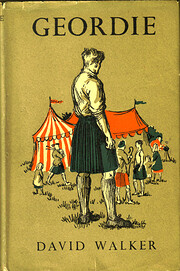Blog
I was recently asked about my method(s) for researching the cultures of my characters, their settings, and the times in which they dwell. Although I’ll mention examples from more than one source, my focus will primarily be upon research into and decisions made regarding Wat Haggard & Prairie Wren.
The idea of a modern-day crime
novel around an aging, rural sheriff was developed in discussion with my son,
Tony, an actor seeking an idea for a script. When he bogged down in developing
the idea, I decided to run with it. In order not to “steal” the story from him,
I decided to move it far away from his California locale.
I chose western Nebraska for its
prairie terrain, particularly around The Sand Hills. Working with a map, I
chose two more sparsely populated, contiguous, north-south counties I then
renamed. The southernmost county contained a National Wildlife Refuge, also
renamed, which I decided to incorporate into the story. In the process, primarily
online, I researched terrain, agriculture, population density, principal towns,
town governance, policing, and seasonal climate, the latter important since the
story was set in December. When uncertain, I allowed imagination to take over.
For me, once a choice of location has been made, characters assume
dimensionality.
Relative to antagonistic
characters, I thought of the reality of workforce reductions in the Bakken Oil
Fields after production cutbacks and where they might go for those that live peripatetic
lives. The roughness of the antagonists I imagined from the impact the
itinerant workers had upon the small, North Dakota towns where they settled,
the kind of characters a sudden economic boom can draw – many good hard-working
people, but some less than. The character of Prairie Wren was developed from my
awareness of the abuse (and worse) of too many indigenous women, many missing,
some even murdered.
If an informational gap remains
after my online efforts or a clarification is needed, I will make a telephone
call to an appropriate organization. Example: In Where Seldom Is Heard, the setting an unnamed Indian reservation on
the North Dakota / South Dakota border, I made a call to the Standing Rock
Indian Reservation’s governmental office. To my surprise, it was answered by
the Tribal Attorney who hesitantly, but generously answered my pre-written
questions. Example: In Its Just Another Day, after I had exhausted
my online efforts to research the Newport News, Virginia coal port, I placed a
blind call to the port. I cannot recall the official I spoke to, but again, after
an initial hesitance, he kindly answered my pre-written questions
regarding the loading process of an ocean-going coal carrier.
Please notice the underlined
“pre-written.” For me it was a necessity I’d recommend to others. When an
opportunity presents itself, do not try to wing it; rather, be ready.









